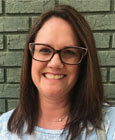By Natalie Ford, PhD, LPC, CPCS
Sheltered in. Most of us had never heard of this a month ago, but now it has become a very real part of our lives. Isolation is one of the worst things for the human psyche, that is why the prison systems use solitary confinement as punishment.
God created us for relationships. In Genesis 2:18 the Lord said, “It is not good for man to be alone.” This was written before the Fall, before sin entered the world in Genesis 3. This tells us that we need others, not because we are somehow weak or needy, but because God created us to be relational.
So, if we need others, how can we connect during this time of social distancing?
Isolation breeds depression. We have to fight to keep depressive symptoms at bay. Get out of bed; get dressed as if you are going out. Reach out to others who might need encouragement. Listen to uplifting music. Get moving – research shows exercise is more effective than antidepressants at treating depression. Go outside; Vitamin D is also helpful in combatting depressive symptoms.
As difficult as it is, try to maintain some sort of routine. Structure your days. Set a specific time to get up and to go to bed. Maintain mealtimes; consider scheduling phone calls, your quiet time, and exercise. Make a plan and stick to it. This will help to usher in a sense of normalcy during this abnormal time.
It is imperative that you limit your news intake; watching the news all day is draining; it is depressing. Limit the amount of time you watch the news to once or twice a day. While it is important to be informed, you do not want the negativity of the media to consume you.
If you need extra support during this time, many counselors are offering telemental health services. There is no shame in seeking help for depression. If you have COVID-19 symptoms you would seek help; psychological symptoms merit the same attention. Sadly, depression, when untreated, leaves many with suicidal ideation. If this is you, tell someone; don’t be embarrassed or ashamed. You don’t have to suffer alone; if you need help, ask for it.
Here are some resources for those who need extra support during this time:
Georgia Crisis and Access Line (GCAL)
1-800-715-4225 or MYGCAL app
GCAL is available 24 hours a day, 7 days a week, and 365 days a year to help you or someone you care for in a crisis.
CARES Warm Line
For those dealing with substance abuse challenges.
Call or text every day of the year to:
1-844-326-5400
8:30 a.m. – 11:00 p.m.
NAMI HelpLine
For family members of someone who is struggling.
1-800-950-6264
Monday-Friday 10:00 a.m. – 6:00 p.m.

Dr. Natalie Ford is an assistant professor of Behavioral Science at Truett McConnell University.